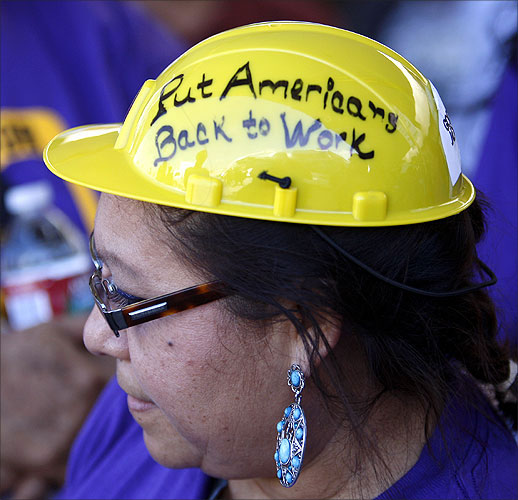 Negotiations on the looming "fiscal cliff" will dominate talk in Washington this month, with both the White House and congressional Republicans having made early offers.
Negotiations on the looming "fiscal cliff" will dominate talk in Washington this month, with both the White House and congressional Republicans having made early offers.
Failure to find a compromise on urgent spending and tax issues that charts a safe path down from the cliff could result in another recession, economic studies have forecast.
At a time of clashing agendas on fiscal austerity and economic stimulus, here are the key tax increases, spending cuts and other issues that comprise the so-called cliff:
TAX MEASURES
* Bush ordinary income tax cuts. On December 31, low individual income tax rates enacted in 2001 under former President George W. Bush, a Republican, are set to expire. President Barack Obama, a Democrat, and Republicans extended them at the end of 2010 for two years.
If Congress does nothing, the income tax will change to five brackets of 15, 28, 31, 36 and 39.6 percent from the present six brackets of 10, 15, 25, 28, 33 and 35 percent.
Obama wants to extend the Bush rates, except for annual incomes that rises above $200,000 per individual, or $250,000 per family. For income above that $200,000/$250,000 threshold, he backs a return to the higher, pre-2001 tax rates.
Republicans insist that the Bush tax cuts be extended at all income levels.
Some have suggested capping itemized deductions instead of raising rates. Both Obama and failed Republican presidential nominee Mitt Romney earlier floated proposals along these lines.
* Bush investment income tax cuts. Bush and Congress in 2003 cut taxes on capital gains and dividends, most of which go to high-income taxpayers. These cuts are set to expire at year-end.
If no action is taken, the long-term capital gains tax rate will rise to 20 percent from 15 percent for the top four tax brackets. At the bottom, they will rise to 10 percent from zero.
Obama wants to let the capital gains tax rise to 20 percent from 15 percent for income above the $200,000/$250,000 level. Taxes on gains below that would still top out at 15 percent.
Without action from Congress, the dividend tax rate will rise to the ordinary income tax rates for each tax bracket, or as high as 39.6 percent for top earners. Dividends on qualified, long-term investments are now taxed at 15 percent for the top four brackets and zero at the bottom.
Obama would keep the 15 percent qualified dividend rate cap for most people, but let it rise on income above the $200,000/$250,000 threshold, to the 36 percent or 39.6 percent rates.
* Obama healthcare tax. Regardless of what happens with the fiscal cliff, investment income above $200,000/$250,000 will be subject to a new 3.8 percent tax under Obama's healthcare law.
* Alternative minimum tax. The AMT - which ensures rich people pay some tax - expired at the end of 2011. That has not had an impact yet because 2012 tax returns have not been filed. The tax is not indexed for inflation. So it is routinely "patched" to prevent tens of millions of upper-middle-class taxpayers from having to start paying it. Both Republicans and Democrats support doing another patch.
* Tax extenders. Dozens of individual and business tax breaks expired at the end of 2011, including the research and development credit. There is wide support for extending them again, but businesses will be watching for any faltering.
* Payroll tax. A cut in the payroll tax was extended earlier this year, in an effort to boost the economy. The current 4.2 percent rate paid by about 160 million workers, down from the previous 6.2 percent rate, expires on December 31. Some Democrats, including Obama, back extending the tax cut. The powerful AARP seniors' lobby opposes renewing the cut, fearing the Social Security system that it helps fund will be undermined.
* Estate tax. The estate tax, which applies to assets passed onto heirs, currently stands at 35 percent, after an exemption level of $5 million. With no action, the tax will rise to 55 percent, after excluding the first $1 million of value.
Obama wants to raise the tax to 45 percent, with a $3.5 million exemption, but some high-profile Democrats have come out in support of keeping the current tax and exemption levels.
BUDGET MEASURES
* Automatic spending cuts. In a deal last year to raise the U.S. debt ceiling, Obama and Congress agreed to $1.2 trillion in across-the-board spending cuts if lawmakers failed to reach a deficit-cutting deal by January 2. They failed. Now lawmakers fear the cuts, known as a "sequester," could harm the economy. Obama has proposed delaying the cuts for a year.
* Unemployment benefits. Millions of people have been exhausting their government jobless benefits during the economic downturn. Congress has extended the benefits several times. Another deadline comes at year-end. Many Republicans want the extensions to stop, saying they discourage job-hunting. Obama has proposed extending the benefits.
* "Doc fix." Because of an outdated formula in the law, government payments to doctors who treat patients on Medicare, the U.S. health program for the elderly and disabled, are routinely underestimated. If Congress doesn't fix the situation by the end of the year, these doctors face a double-digit cut to their payments, which could lead them to drop Medicare patients.
DEBT CEILING
Treasury Secretary Tim Geithner has said the United States will likely hit its $16.4 trillion borrowing limit by year-end, but the Treasury has tools to push the deadline into early 2013. Analysts expect these measures could last until mid-February. The White House wants the debt ceiling raised as part of a year-end deal to avoid the cliff and wants new power to raise borrowing authority.
(Additional reporting by Richard Cowan and Jason Lange; Editing by Vicki Allen)
Photograph: Reuters.











 © 2025
© 2025